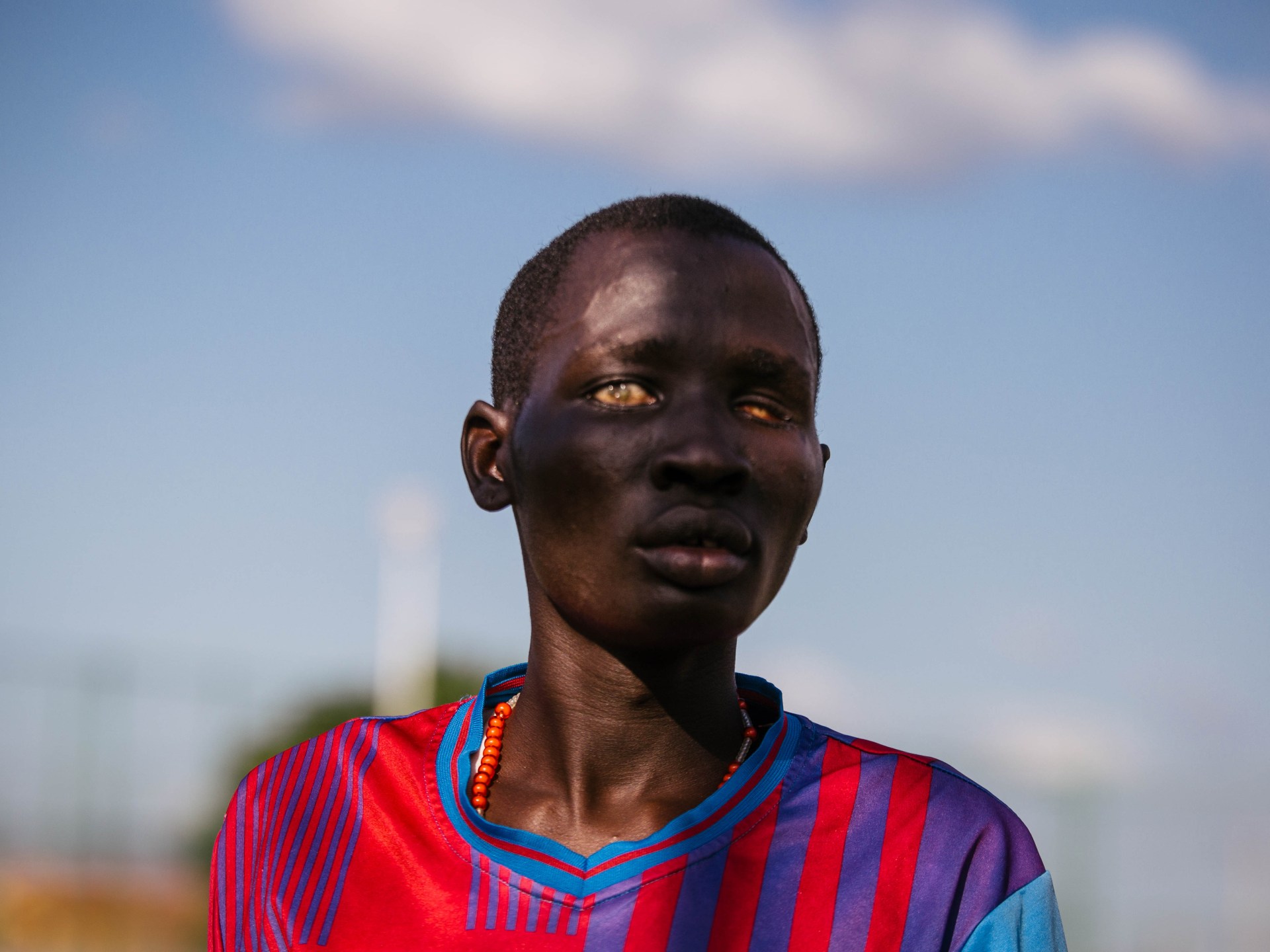
Before Blind League, ‘I completely lost hope’
Participants in the game would play with a jingling ball, while coaches and players’ siblings would knock on the goalposts to help them aim their shots. Players shout “voy” (“I’m coming” in Spanish) to warn opponents of their approach and minimize damage.
All players wear eye patches to ensure equal vision levels.
Madore said it’s a way for players to regain confidence in their bodies, learn how to move without fear and connect with other players facing similar situations.

After practice, Elon enjoyed drinks and cookies with teammates on the sidelines. He explained that he was born sighted but started developing vision problems when he was three years old. “A lot of people said I was obsessed,” he recalled.
South Sudan’s lack of health care specialists and insufficient funds to pay for them meant Elon never received proper care; at 12, he became blind.
As a child, he had been an avid football player, but for the first two years of his blindness, he was trapped at home. “I was frustrated and disappointed. I couldn’t go to school. I had completely lost hope and not playing football was the worst part of it all.”

Elon’s mother, a nurse and government official, eventually heard about the Rajapu Center for the Blind in Juba. “I remember asking my mom, how could a school like this be possible? I didn’t believe I would meet more people like me,” Elon said. At that time, learning to navigate without vision was his biggest challenge, so his mother drove him to Rajapur every day until he found his bearings and learned to use crutches.
Soon, he learned Braille, achieved good results in his exams, and transferred to a regular school in 2019. “There I also changed the mindset of teachers and students because I myself learned that disability is not inability,” he told Al Jazeera.







